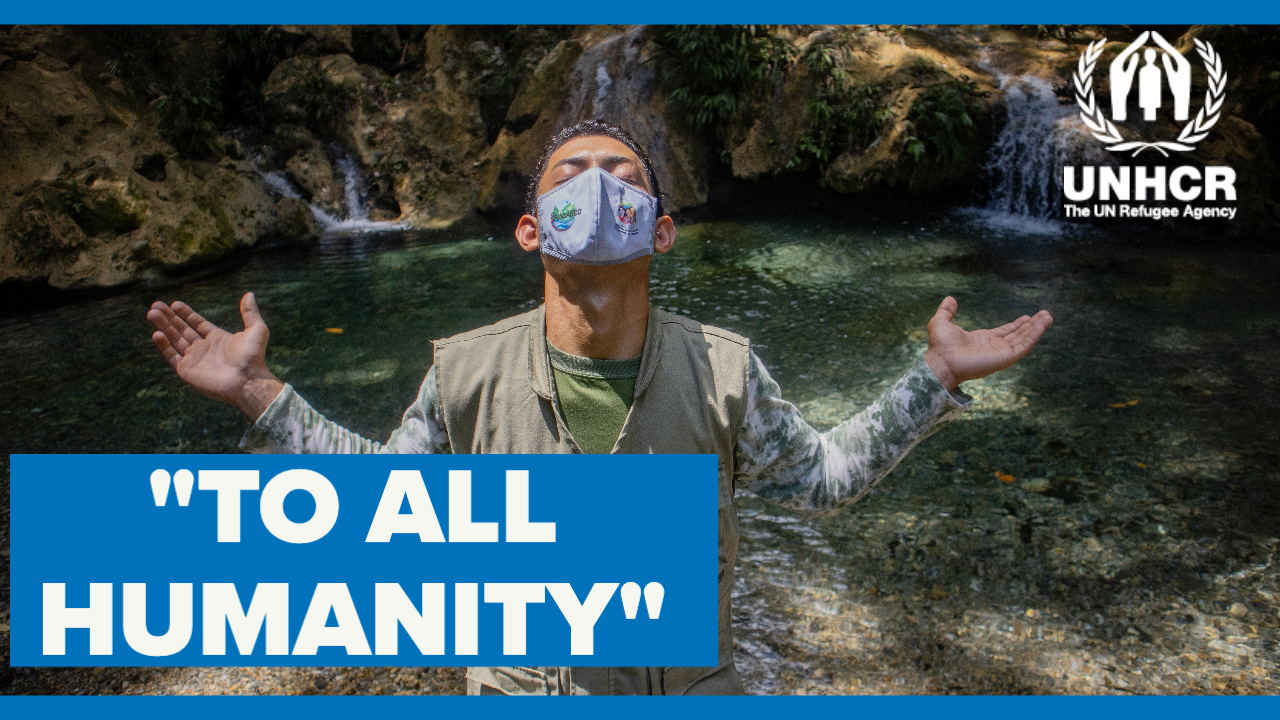'Tusk force' set up to protect refugees and elephants in Bangladesh
'Tusk force' set up to protect refugees and elephants in Bangladesh

KUTUPALONG CAMP, Bangladesh – Battered and badly bruised, Anwar Begum, a Rohingya refugee, surveys the damage around her bamboo shelter.
Sleeping mats ripped apart; plastic buckets and even metal cooking pots and plates torn and dented. Her shelter was toppled – but neighbours in Kutupalong refugee settlement near Cox’s Bazar, Bangladesh, have helped her re-erect it.
“I’m very grateful, thanks to the almighty, to be alive,” the 45-year-old said. “But I’m terrified.”
Just a few days earlier, in the middle of the night, a wild elephant entered her small shelter and killed her husband, 50-year-old Yakub Ali. It was one of several elephants that wandered into the camp, damaging shelters and injuring their occupants, following their usual migratory path.
Anwar and her family fled their home in Myanmar six months ago, settling in the vast Kutupalong refugee settlement. “We weren’t aware of any elephant presence here,” she said. “I remember once seeing elephants back home in Myanmar, but in the distance – never close up like this."
Clearly shaken, Anwar recounted the events that occurred that night. “It was around 1 a.m. I heard a heavy sound and felt the roof falling onto us. It was quick and loud. I started screaming. It all went very fast and my husband was killed”.
Anwar was treated in hospital for three days. By the time she came back to the settlement, neighbours had helped to rebuild her shelter. UNHCR’s partners have now provided her with new household items, and Anwar has received counselling from UN Refugee Agency protection staff.
UNHCR and its partner IUCN – the International Union for Conservation of Nature – have now launched an action plan to try to prevent incidents like this, which have resulted in the deaths of at least 10 refugees, including young children, in Kutupalong settlement.
“This partnership is critical not only to ensure the conservation of elephants, but to protect refugees."
The highly congested site, which used to be forest land, lies along one of the migratory routes between Myanmar and Bangladesh for critically endangered Asian elephants.
The so-called ‘tusk force’ will work with both the local host community and refugees, in close consultation with the Bangladesh Forest Department and the Refugee Relief and Repatriation Commissioner’s Office.
Mitigation plans include installing watch-towers in key spots around the settlement, as well as setting up Elephant Response Teams who can sound the alarm if elephants enter the site. Elephant routes and corridors will be clearly marked, so that people will know which areas to avoid. Campaigns will also be carried out to create better awareness of the risks.
“This partnership is critical not only to ensure the conservation of elephants, but to protect refugees, a number of whom have tragically already lost their lives,” said Kevin Allen, UNHCR’s head of emergency operations in Cox’s Bazar district.
The project is part of a wider initiative by UNHCR and the IUCN, in support of government activities, to mitigate some of the environmental impacts linked to the establishment of refugee settlements in Cox’s Bazar.
Other plans include carrying out environmental education and awareness among refugees and the host communities about the importance of forest resources as well as taking steps to improve the environment in the refugee settlement areas and nearby surroundings.
The project leaders will also advocate for reforestation programmes to ensure that natural resources and a shared environment are better protected.
Your support is urgently needed to help refugee children, women and men in Bangladesh. Please give now.









